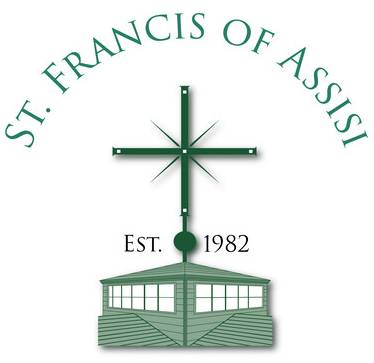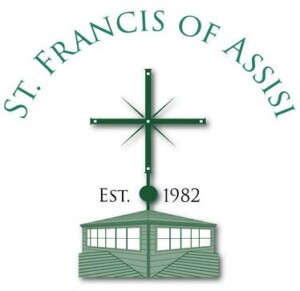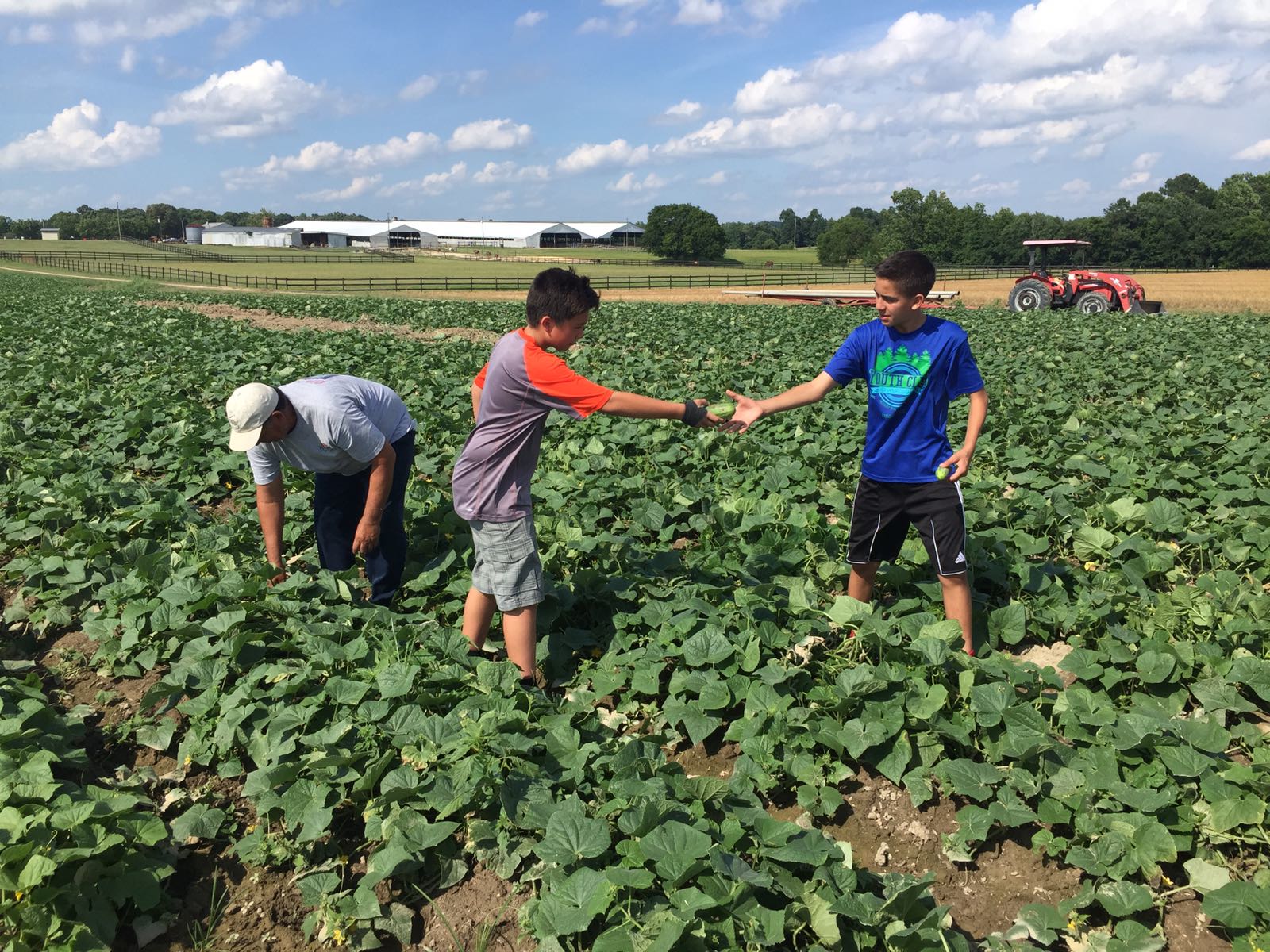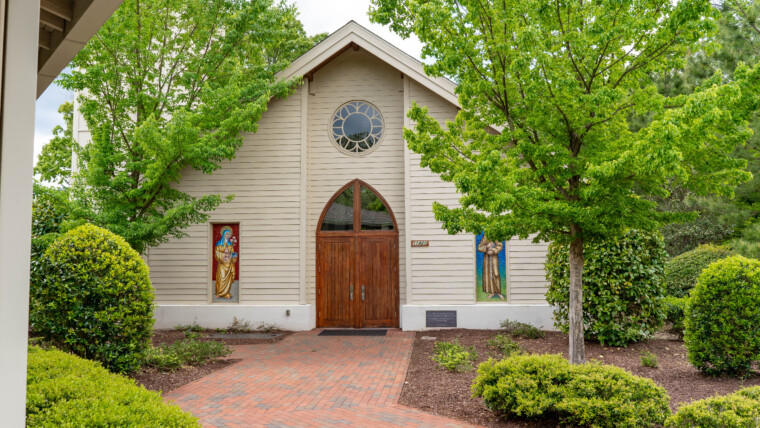Catholic Social Teachings are in many of the stories shared here, and when discussing the Migrant Ministry at St. Francis, the same is true, but even more so. When you speak with Marylou Holloway about the ministry, you see the overlap with ‘solidarity,’ the dignity of the human person,’ ‘option for the poor and vulnerable,’ and ‘the dignity of work and worker’s rights.’ Marylou is a passionate and strong advocate for the ministry and all it does for those workers who come each year to work in the agriculture industry in our state.
Each year the ministry starts in the spring with a clothing drive and a survey of interest among the parishioners who want to help during the summer into September. This year, the clothing drive was on April 15/16th weekend, but there is always an opportunity to help during the summer. The primary need is for drivers to take the workers, migrant men, to Mass at Our Lady of the Rosary in Louisburg on Sundays. The drivers meet at the Food Lion before 11:00 AM and trek to nine different camps to gather those interested in attending Spanish Mass at 1:00 PM. When asked about driving the men to Church through the Migrant Ministry, Marylou says, “It’s just so wonderful! You know, the men come in very anxious to get to Mass, and we also have the fiestas once a month.” They love the opportunity to practice their faith and spend time off work with others. She continues, “I feel sad for our men who are always looking at all the families there (at church), and I know they are missing their families.” The Fiestas have a fabulous cook, Vicki Carrillo, and her helper Adrianna, who work through Our Lady of the Rosary to cook and set up the food for the July, August, and September celebrations. Each week up to 28 men are brought together and attend Mass, and they can only do that because of the generosity of drivers from St. Francis.
Marylou shares times when the workers sometimes have unique needs and challenges. She shared that Gilbert Penna, a man who travels to the camps, speaks to the workers, and is a great help to the ministry, came with a request from a gentleman named Bruno, who needed a vacuum. Marylou recalls, “I stood up in Mass and asked if anyone had an extra vacuum. Two people had a vacuum, and another one, which speaks to our congregation’s generosity, said, ‘I’ll gladly buy a vacuum for you.’ I took one of the older ones out for Bruno because farmers only let them clean once every six weeks.”
These men who travel to North Carolina each year have a tough life here, and the ministry tries to bring some small comforts to them. This year they put together welcome bags, in addition to the clothes gathered during the drive, with toiletries and combs, small things they would need, and two pairs of chemical-proof gloves. Why the gloves? Marylou shares a story that reveals some of the difficulties of these men’s experiences. “Last year, we visited a house on a work Sunday, and this guy limped out of the house, and he kept rubbing his hands,” says Marylou, “so an interpreter asked why he kept rubbing his hands.” He had nicotine poisoning from working in the tobacco field without gloves. So now the ministry provides chemical gloves for the workers. The conditions are challenging and often tragic. Another story she heard, as the workers toil from sunup to sundown, was “one year someone died around noon in the field because of the heat. The other workers asked if they could take the rest of the day off because it was so hot. The answer was no, and they had to keep working the rest of the day.”
Marylou interviewed some of the men with Gilbert mentioned above, and they drew a map of where everyone was coming from in Mexico. They found these men, about 90 people in the nine camps they work with, come from seven states in Mexico. They come primarily from Mexico because they hear about the work here by word of mouth from friends and relatives where they live. For instance, take Bruno, the man looking for the vacuum; he has come to North Carolina for 26 years. His mother passed away recently and left him a small farm as an inheritance. He feels he can make enough on the farm in Mexico for his family. However, his son got impatient and wanted to come to the US for work by crossing the border in Texas three times over the past several years; he doesn’t want to move around too much because he doesn’t have a visa. Bruno’s work visa is for NC, so he can’t go to Texas to see his son and hasn’t seen him for years. Hopefully, they can reunite in Mexico and make the farm work for their family. Unfortunately, crossing back and forth on the border is dangerous, and many people die of exposure and thirst. Marylou mentioned that “more people, in one year, die on the southern border than in all the years the Berlin Wall was in place.” Border policy is a complex and perplexing issue fraught with differing political solutions. Still, there is a tragedy in those honest people who brave the elements and risk death looking for sustainable work.
So how can you help in this mission of care and hospitality? On the ‘St. Francis Serves’ website, the Migrant Ministry, has opportunities to drive. Can you provide some compassion and help on the weekend for Mass or at a fiesta weekend to welcome those who pick our food and go through so much providing for their families at home? The migrant ministry has served at St. Francis for decades to help the ‘least among us’; this ministry could be calling to you too!
Author: Mike Watson






